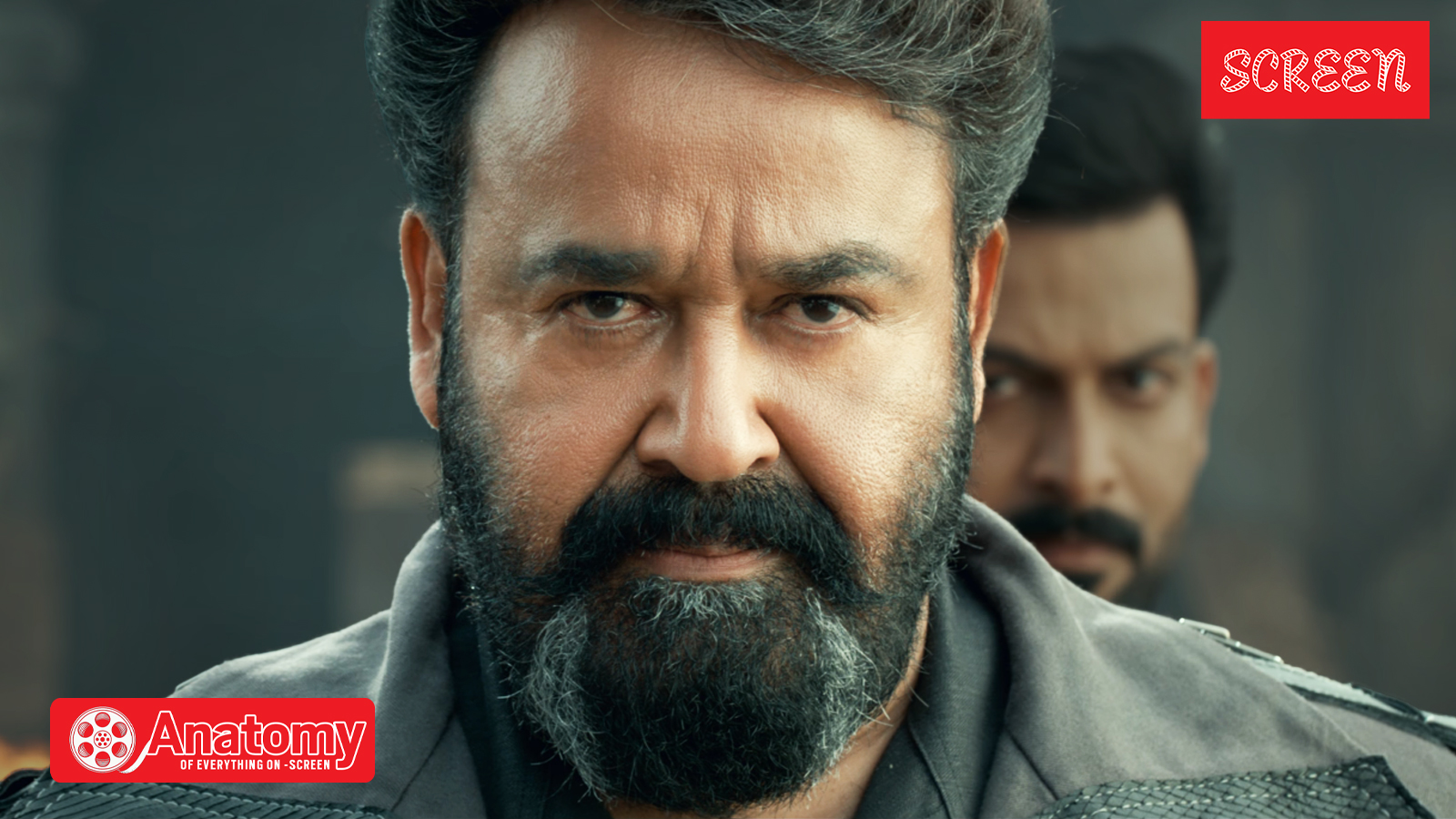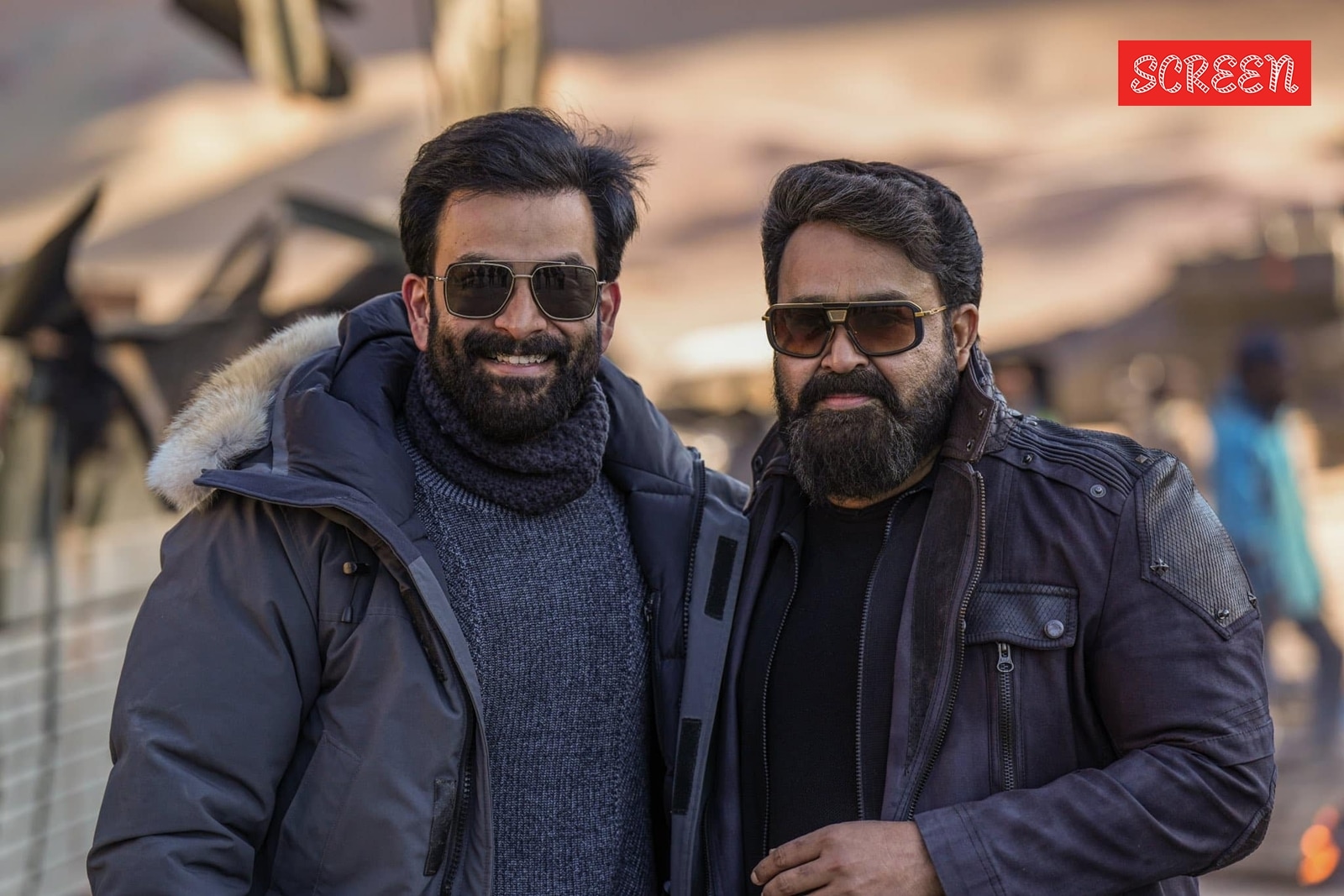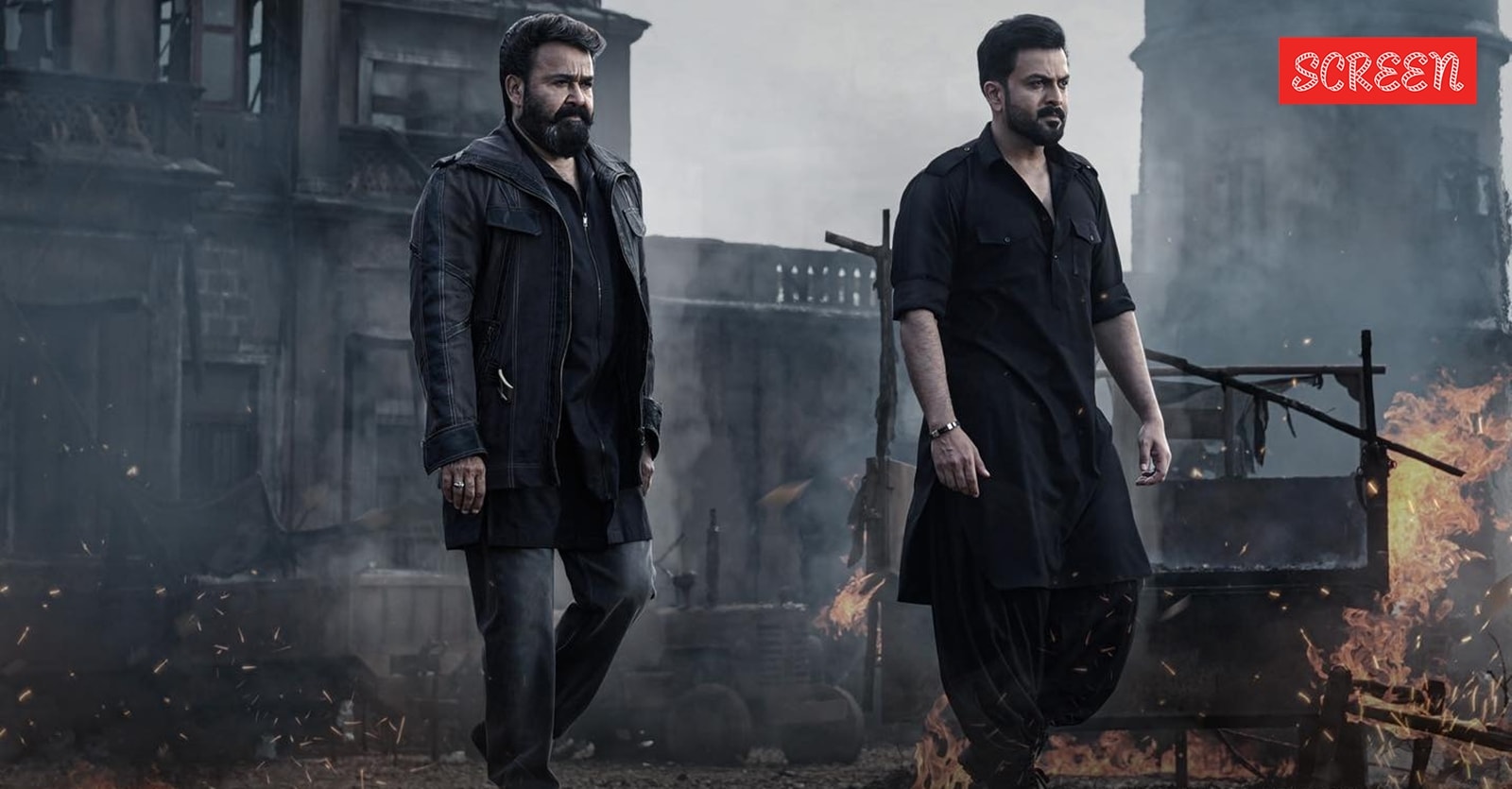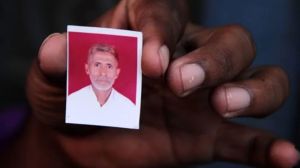As if sensing that the symbolism and metaphors in his writing were too much for some to handle, Murali chose a more direct approach for the political themes in Empuraan, especially in the scenes set against the backdrop of the 2002 Gujarat pogrom. And the result? The movie became a national sensation.

However, soon after a bunch of right-wing supporters made a hue and cry about Empuraan, its lead actor Mohanlal and director Prithviraj Sukumaran on social media, the makers swiftly conceded defeat and made “voluntary modifications” to the already CBFC-certified film. Shockingly, the right-wing fanatics didn’t even have to organise protests or approach the courts for this. In the New India, all they had to do was share their demands on social media, and the makers quickly complied. In an age of booming technology and global innovation, this, however, was not the interactive cinema we had hoped to experience.
While Team Empuraan’s actions set a deeply troubling precedent, they also stand as a silent confirmation of the chilling influence right-wingers wield in India today. This becomes even more evident when the latest developments are analysed in tandem with the incidents that followed the release of Chhaava. Despite the movie and its depictions triggering law-and-order issues in Maharashtra and even leading to the violence in Nagpur, in which a Muslim man was killed, Chhaava faced no censorship.
Watch Empuraan trailer here:
In fact, the film received another layer of special protection because its narrative aligned with Hindutva ideals. The same was true for The Sabarmati Report (2024), despite it reeking of a preconceived mindset and prejudice against a specific community. Yet, this bigotry was never called out, nor did demands arise to cut the problematic portions, because the ruling party and its supporters simply declared the incidents depicted in the film as “true”. Simply check the list of movies declared tax-free by BJP governments in various states in recent years; this will further demonstrate how the right-wing ensures that what it deems “true” reaches everyone without obstruction.
If not, then why the Empuraan controversy? Aside from reducing the symbolism in his writing for this Prithviraj Sukumaran directorial, Murali Gopy — the son of legendary actor and BJP member (late) Bharat Gopi — had also played it safe with the political and communal elements. Without going overboard or pointing fingers, Murali’s script presents the scenes set against the backdrop of the 2002 riots in a dramatic manner, featuring only “good” and “bad” people, whose religious identities do not define their character. In the same controversial first act of Empuraan, we also see a Hindu woman, Subhadra Ben (Nikhat Khan), protecting innocent Muslim villagers from hate-mongers who are exploiting the situation to instigate violence and commit atrocities, rather than reinstating peace. She asserts that the rioters are acting out of greed and for political gains. She reassures the distressed people, saying, “Lord Ram will protect you.” Yet, in the controversy, Subhadra Ben and her Hindu allies, who protect the villagers, are conveniently ignored by right-wingers.
Their issue lies in the portrayal of Balraj Patel alias Baba Bajrangi (Abhimanyu Singh) — whose name has been changed from Bajrangi to Baldev in the new version — and that too in a film that clearly states that the characters and incidents depicted are fictitious. Even if he is based on a real person, the actions he and his associates commit suggest that Balraj Patel’s character is inspired by the notorious Babu Rajabhai Patel alias Babu Bajrangi, who was accused in both the Naroda Gam and Naroda Patiya massacres. Before being acquitted in the Naroda Gam case, Bajrangi was convicted for the Naroda Patiya massacre and sentenced to life imprisonment. In 2018, the Gujarat High Court upheld his conviction but commuted his sentence to 21 years without remission. He has been out on bail since 2019 on medical grounds due to vision loss.
Story continues below this ad
 Actor-filmmaker Prithviraj Sukumaran with Malayalam superstar Mohanlal on the sets of their L2 Empuraan. (Credit: Facebook/@AashirvadCinemasOfficial)
Actor-filmmaker Prithviraj Sukumaran with Malayalam superstar Mohanlal on the sets of their L2 Empuraan. (Credit: Facebook/@AashirvadCinemasOfficial)
Despite the character being loosely based on a real person, right-wingers feel that this portrayal is “anti-Hindu and anti-national”. But why? Could it be out of fear that more uncomfortable truths would surface if we continue digging? Who knows. And, are political films only acceptable as long as one community is portrayed as the villains?
At the same time, the right-wingers also conveniently ignore the fact that the character Zayed Masood (Prithviraj), despite being driven to a terrorist camp after the massacre of his family and loved ones, ultimately does not embrace that ideology. He is even shown hesitating to raise their slogan and soon joins Stephen Nedumpally aka Khureshi Ab’raam (Mohanlal) in a battle against “drug cartels and jihadi groups.”
Zayed does not use the tragedy that befell him and his family as an excuse to massacre members of one particular community. He doesn’t “settle scores” by killing an equal number of people from the opposite community to match the lives lost from his own. Instead, it is only the masterminds — those who used others as mere puppets — that he and Stephen finish off in the end, as an act of revenge.
 While Mohanlal plays Stephen Nedumpally alias Khureshi Ab’raam in Empuraan, Prithviraj Sukumaran portrays his confidant Zayed Masood. (Credit: Facebook/@AashirvadCinemasOfficial)
While Mohanlal plays Stephen Nedumpally alias Khureshi Ab’raam in Empuraan, Prithviraj Sukumaran portrays his confidant Zayed Masood. (Credit: Facebook/@AashirvadCinemasOfficial)
Although it upset right-wingers, Empuraan’s politics is indeed half-baked. It reduces the entire episode of the Gujarat pogrom to a simple case of “one (or more) power-hungry politicians’ greed,” unfairly erasing its communal dimension.
Story continues below this ad
Even when the movie progresses, Balraj and his aide Munna (Sukant Goel) are depicted simply as greedy politicians who don’t focus much on the religious aspects of things and use them only for personal gains. Balraj seeks to capture power in Kerala not to instigate communal violence, but because it would open up more sea routes for his illegal business. Thus, he is portrayed as a typical corrupt politician rather than a hate-monger per se. Yet, Empuraan was dubbed by many as an anti-Hindu film promoting a “Jihadi agenda”. What’s even more ironic is that a glance at the film’s cast and crew reveals that a large section of those who worked on the film, including writer Murali, director Prithviraj and lead star Mohanlal, are Hindus. Yet, the blame still falls on Islam. Hypocrisy, much?
Nonetheless, the bravery shown by the film’s team, especially Murali and Prithviraj, in creating such a large-scale movie with a decent plot — unlike other typical pan-Indian films — is commendable. Also, it’s clear they knew full well that a wave of hate and resistance would come from the authorities. Yet, the way they backed down so quickly highlights that their commitment to the subject wasn’t fully genuine. What did they expect? That they could tackle such a sensitive topic without facing backlash from right-wing groups?
At the same time, by shamelessly extending an apology, Team Empuraan has also brought shame to the Malayalam film industry and its audience who, through years of effort and mutual cooperation, cultivated an environment where artists can fearlessly discuss politics through their work. From Nirmalyam (1973), Adaminte Variyellu (1983), and Irakal (1985) to The Great Indian Kitchen (2021) and Kaathal – The Core (2023), among many other titles, Malayalam cinema became what it is today because of its fearless exploration of difficult themes. By succumbing to such external pressures, Team Empuraan has betrayed the audience, including fans of Mohanlal and Prithviraj, who supported them amid the controversy.
 Empuraan serves as the second installment in a planned trilogy that began with Prithviraj’s 2019 directorial debut Lucifer. (Credit: Facebook/@AashirvadCinemasOfficial)
Empuraan serves as the second installment in a planned trilogy that began with Prithviraj’s 2019 directorial debut Lucifer. (Credit: Facebook/@AashirvadCinemasOfficial)
Meanwhile, this situation also serves as a glaring example of the absolute cowardice of film organisations in Kerala, which have yet to address the matter properly. While the Film Employees Federation of Kerala (FEFKA) finally woke up after four days, organisations such as the Actors’ Association of Malayalam Movie Artists (AMMA), the Kerala Film Producers’ Association (KFPA) and the Kerala Film Chamber of Commerce (KFCC) have yet to comment on the matter, let alone extend support to their colleagues.
Story continues below this ad
Even noted film producer, KFPA vice-president, and Mohanlal’s childhood friend G Suresh Kumar, who came out in support of the propaganda movie The Kerala Story — which initially attempted to peddle the lie that it portrayed the stories of more than 32,000 Kerala women allegedly radicalised by Islamic fundamentalists, only to later backtrack and revise the number to three — has yet to issue a public statement on the Empuraan controversy.
As Empuraan’s latest version, which underwent “voluntary modifications,” hits the screens, it’s crucial for “We, the People of India” not to forget this controversy, as it provides a larger picture of where our country is headed. Particularly since “live and let live” are statements the courts reserve only for special cases in which certain people are the accused.
Cinema cannot exist in a vacuum; it’s all about the discussions that follow. In the Cinema Anatomy column, we delve into the diverse layers and dimensions of films, aiming to uncover deeper meanings and foster continuous discourses.




 Actor-filmmaker Prithviraj Sukumaran with Malayalam superstar Mohanlal on the sets of their L2 Empuraan. (Credit: Facebook/@AashirvadCinemasOfficial)
Actor-filmmaker Prithviraj Sukumaran with Malayalam superstar Mohanlal on the sets of their L2 Empuraan. (Credit: Facebook/@AashirvadCinemasOfficial) While Mohanlal plays Stephen Nedumpally alias Khureshi Ab’raam in Empuraan, Prithviraj Sukumaran portrays his confidant Zayed Masood. (Credit: Facebook/@AashirvadCinemasOfficial)
While Mohanlal plays Stephen Nedumpally alias Khureshi Ab’raam in Empuraan, Prithviraj Sukumaran portrays his confidant Zayed Masood. (Credit: Facebook/@AashirvadCinemasOfficial) Empuraan serves as the second installment in a planned trilogy that began with Prithviraj’s 2019 directorial debut Lucifer. (Credit: Facebook/@AashirvadCinemasOfficial)
Empuraan serves as the second installment in a planned trilogy that began with Prithviraj’s 2019 directorial debut Lucifer. (Credit: Facebook/@AashirvadCinemasOfficial)































